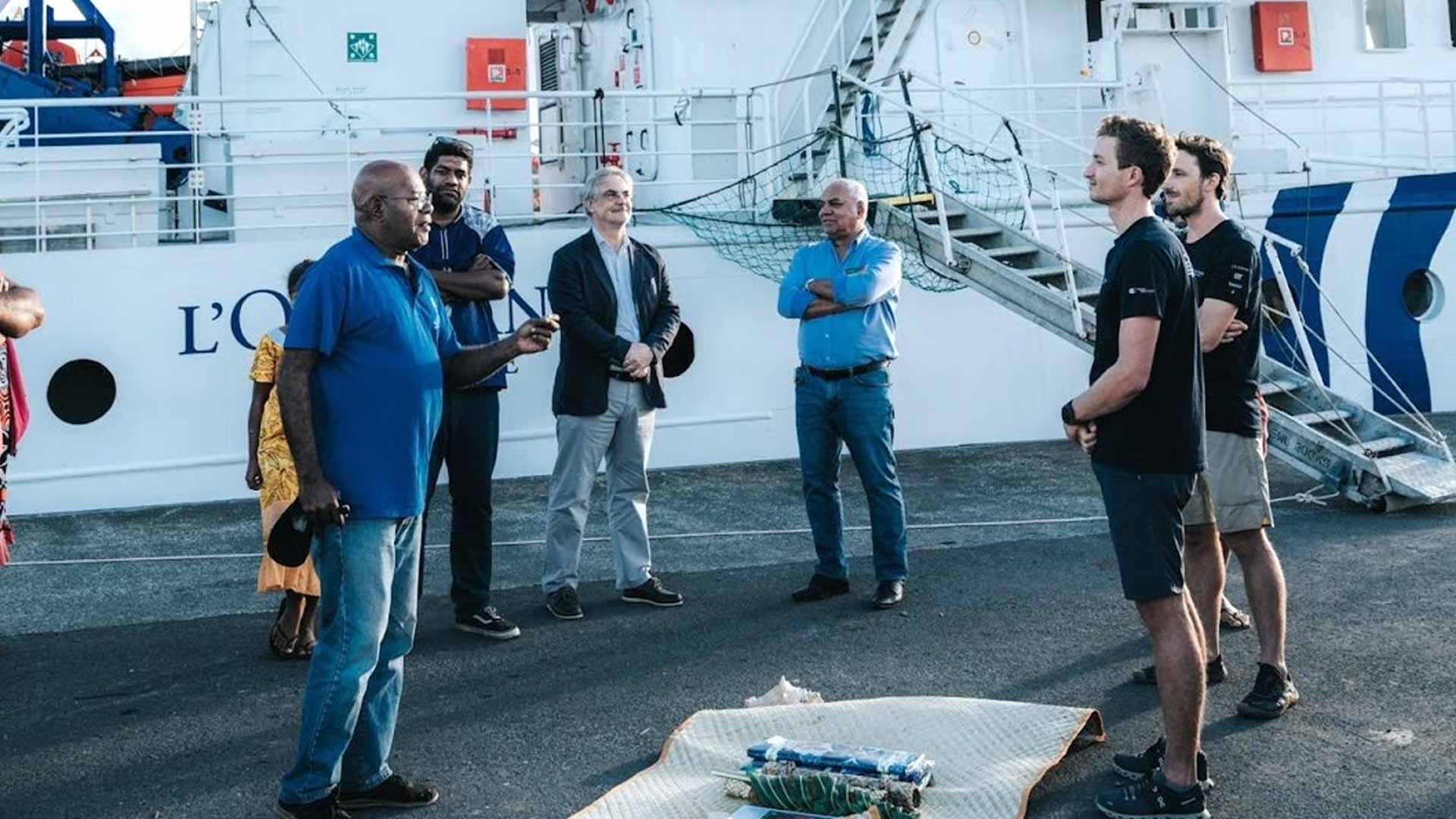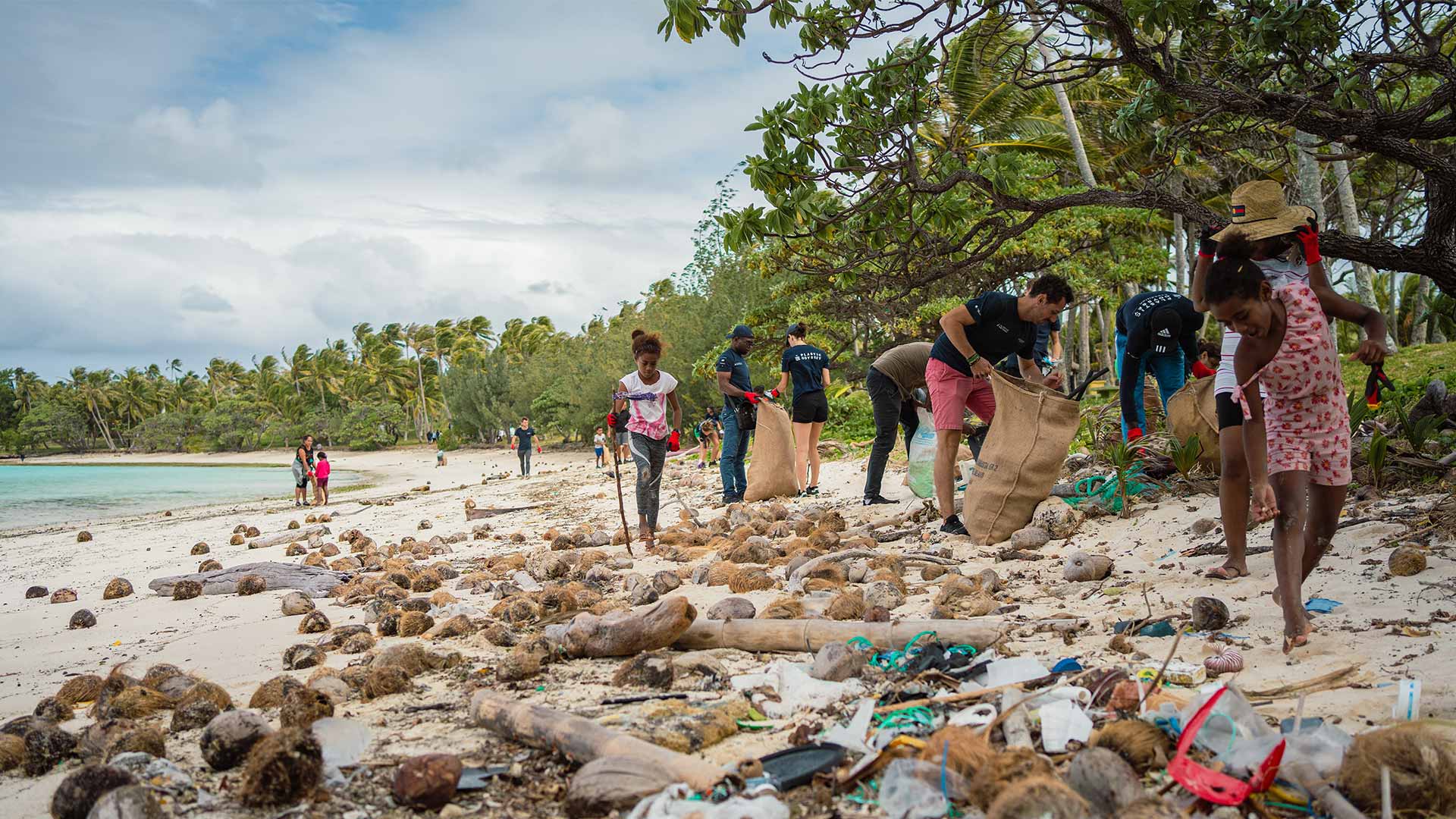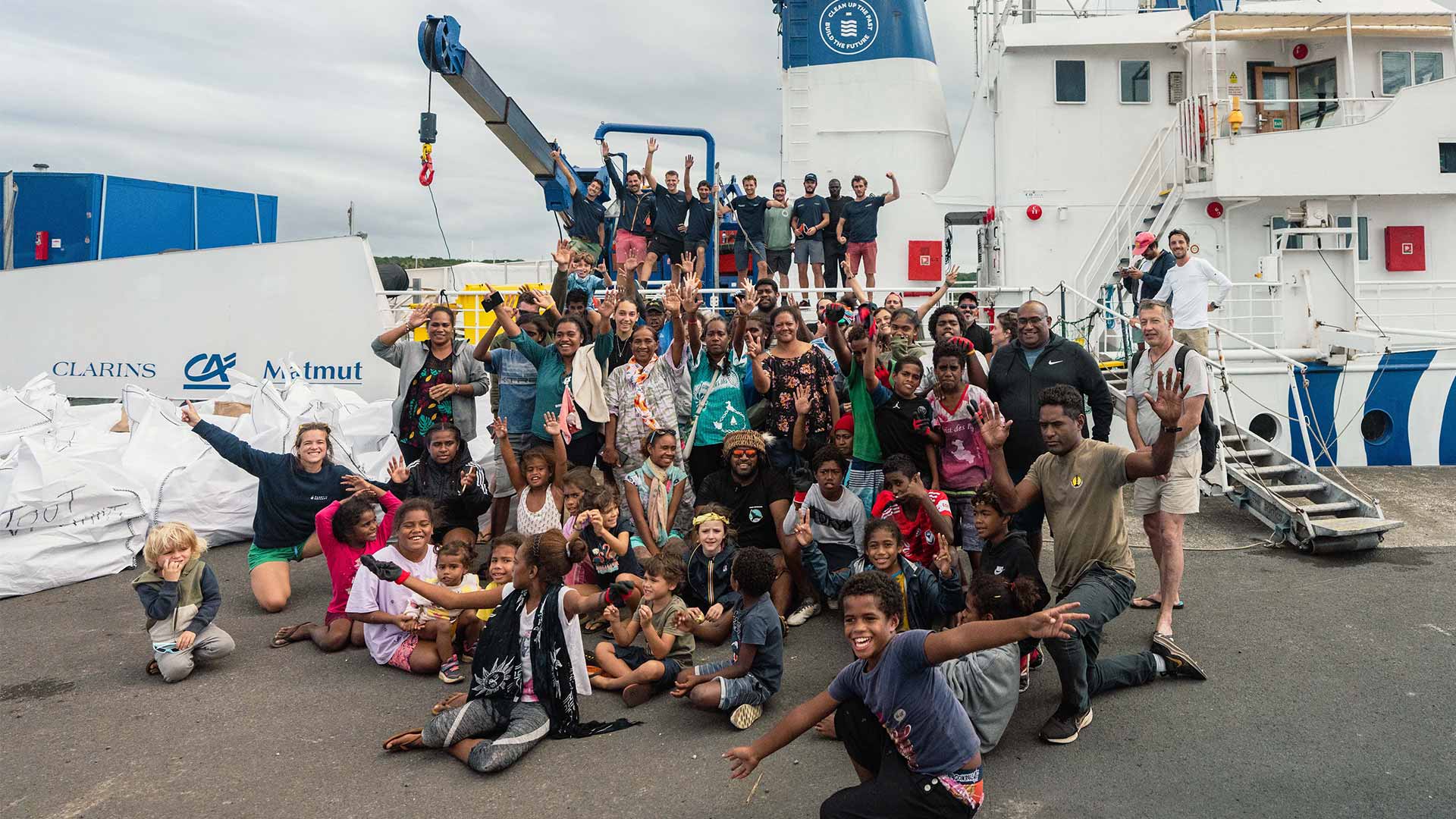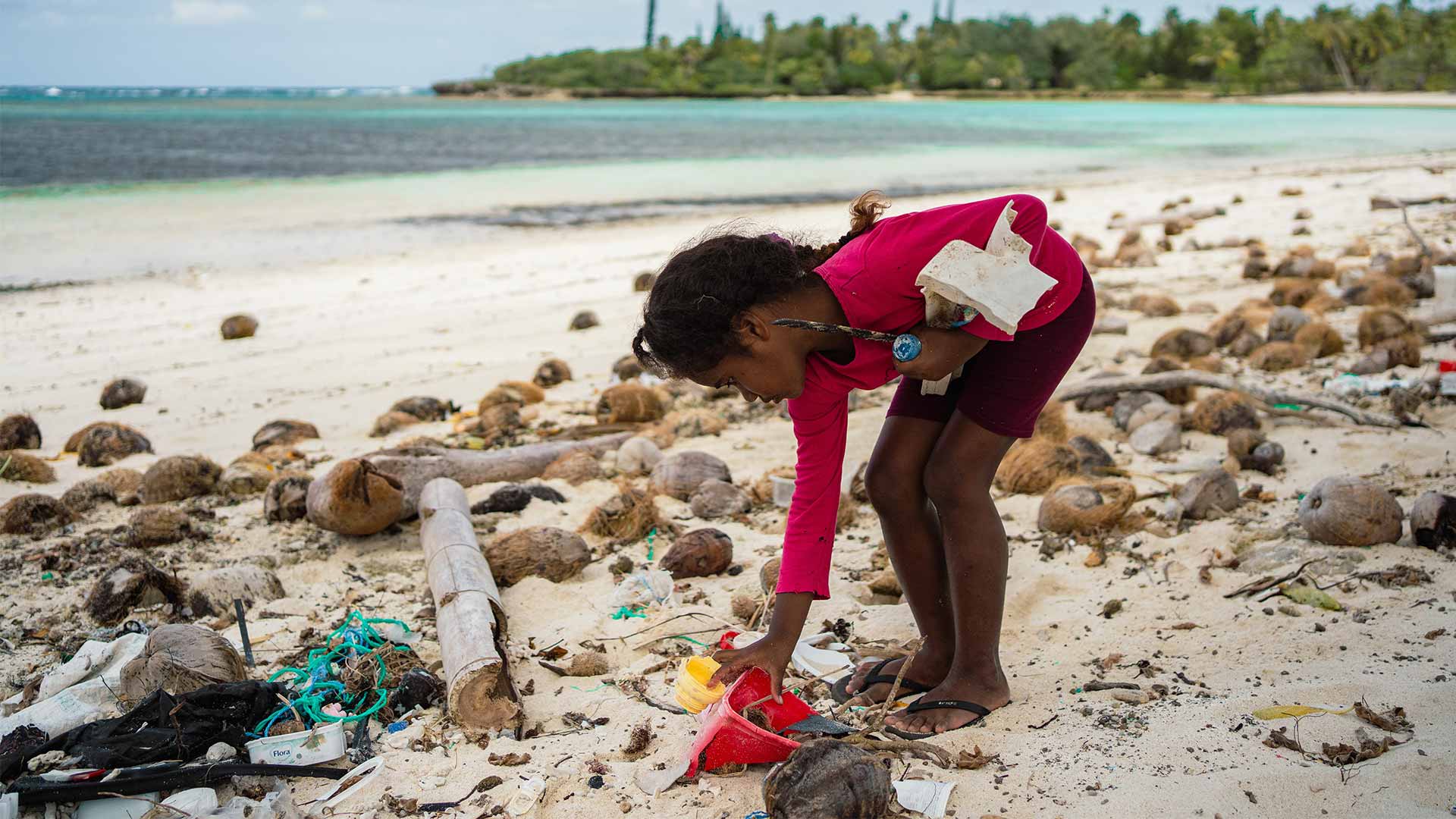
New Caledonia: Cleaning the Beaches of the Loyalty Islands
Plastic Odyssey’s last stopover in the Pacific took place in New Caledonia, a small French archipelago with a population of 271,407. These islands are unique, not least because of the rich diversity of peoples who live together on a single territory: Kanaks, Europeans, Asians, Polynesians and many others.
Unfortunately, our stopover was short-lived due to the tense political situation. We were therefore forced to cut the mission short, but nevertheless had the opportunity to visit Lifou, a sparsely populated island inhabited mainly by Kanak tribes. The aim was to carry out a beach clean-up with the community, which was a real success.
The Kanak tradition
The Kanaks are the very first indigenous people of New Caledonia. Even today, they can be found all over the islands. In their culture, they practice what is known as “custom”, a set of rites and rituals used for various occasions, such as weddings, mourning, arrivals and departures. The tradition demonstrates respect and humility towards hosts who welcome guests to their land. This involves offering symbolic objects to demonstrate mutual recognition.
When we arrived on the island of Lifou, the whole Plastic Odyssey team was present on the quay to perform the tradition with the chiefs of the various tribes. It was a powerful moment, fueled by exchanges about their way of life and the reality of plastic pollution on the island. Among the gifts we received was a yam, a sacred and symbolic vegetable representing the richness and generosity of Kanak culture. For our part, we gave away a few Plastic Odyssey items.
Cleaning up isolated beaches polluted by waste from the sea
The next morning, the whole team was received in the hut of the grand chief of the territory where the beaches to be cleaned were located. The aim is to get them to allow us access to these lands, which are owned by the community. In this place, a traditional and ancestral shelter protected from hurricanes and conducive to exchanges and the maintenance of a community spirit, we attended a second welcoming ceremony with the Kanak Grand Chief. Once again, it was an opportunity to exchange views on our shared environmental preservation objectives.
Accompanied by more than a dozen children and tribal residents, we then carried out a waste clean-up operation and raised awareness of plastic pollution on various Lifou beaches. Everyone was very collaborative and hard-working: the clean-up was carried out with laughter and good humor.
A 100% zero waste lunch
After this commendable effort, the cleanup volunteers offered lunch to all participants. An entirely zero-waste meal, a first in the history of Plastic Odyssey meetings! The bowls containing the meal were made from coconut shells, and the cutlery from the rigid stems of palm leaves. The drinks were presented in carefully cut coconuts. The result: an excellent local meal, plastic-free and 100% biodegradable.
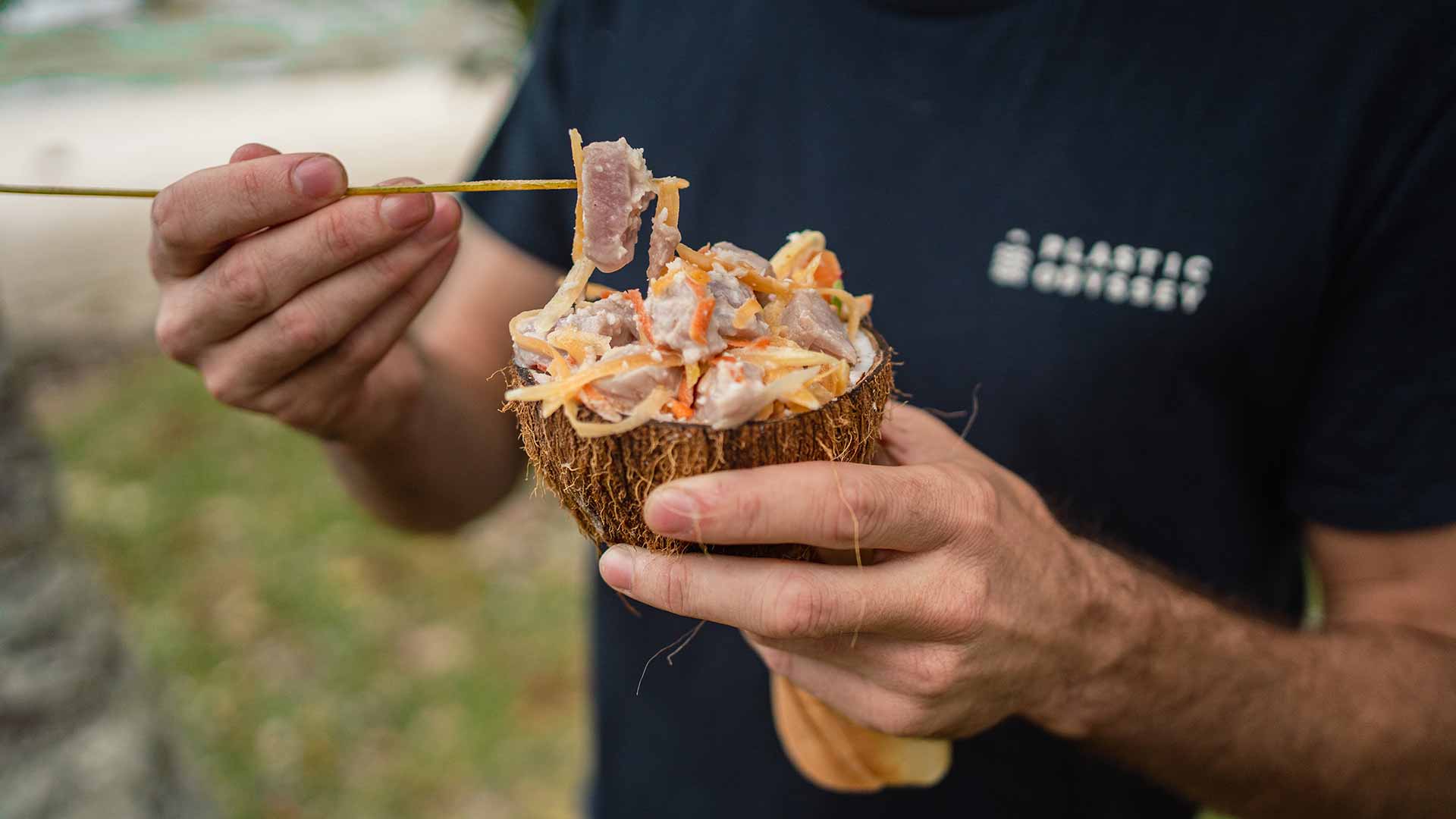
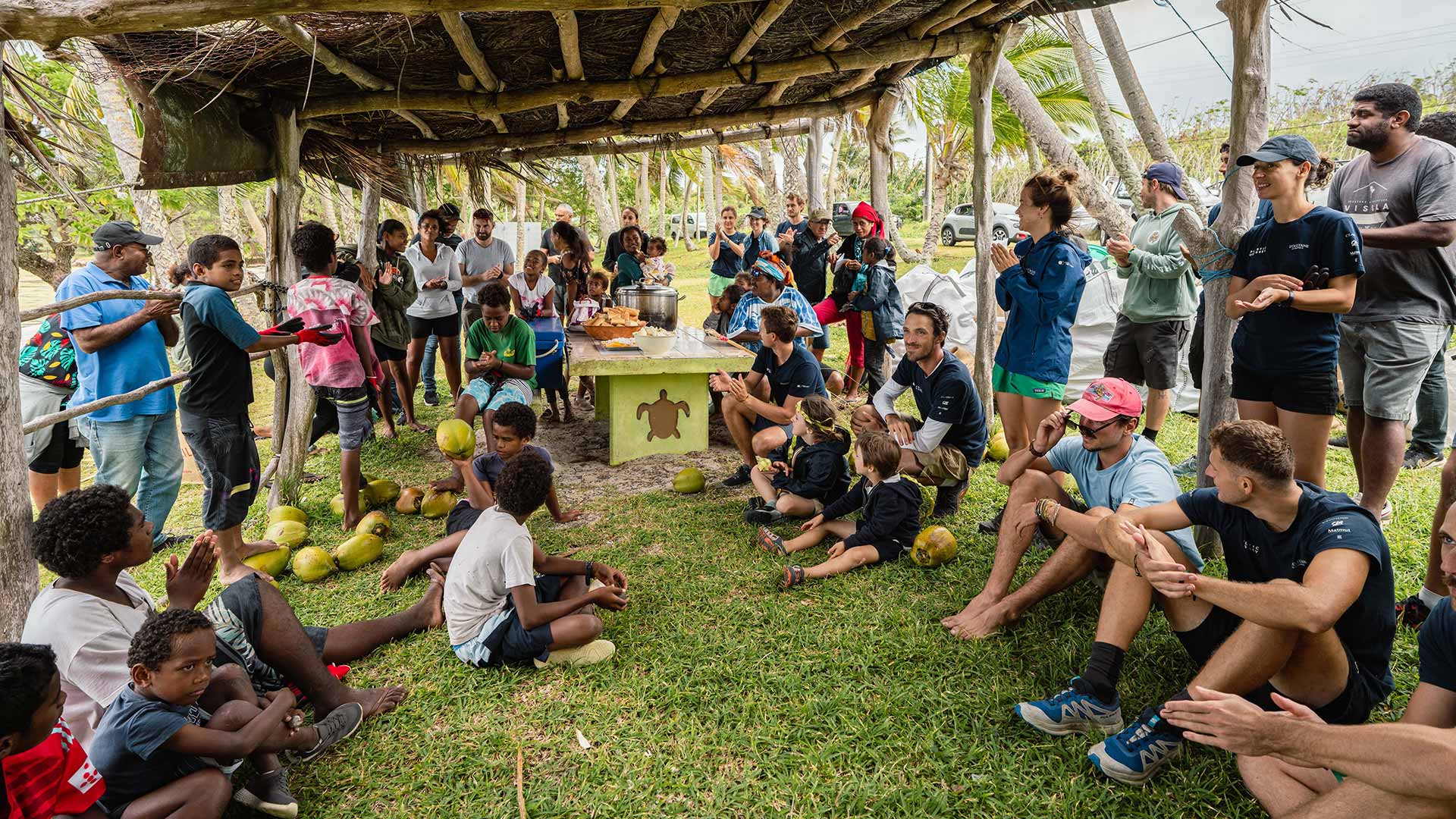
At the end of the day, we returned to the boat with all the garbage. After weighing, we were amazed at how much had been collected:
In less than a morning, 550 kg of garbage was collected
thanks to everyone’s collaboration.
We then took participants on a tour of the Plastic Odyssey boat to show them the technological solutions available for transforming rigid plastic.
This unforgettable experience on the island of Lifou enabled us to get to know and immerse ourselves in Kanak culture, talk to the locals about plastic pollution and share some very powerful moments in a very short space of time. It also enabled us to understand the attachment of indigenous peoples to their environment, their islands and their ocean – a common thread between our mission and their reality.

